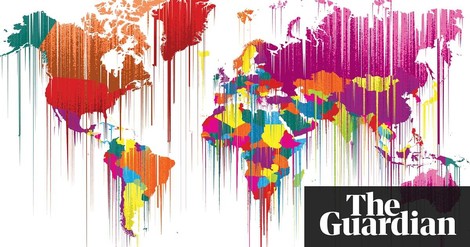Your podcast discovery platform
Curious minds select the most fascinating podcasts from around the world. Discover hand-piqd audio recommendations on your favorite topics.

piqer for: Globalization and politics Global finds
I am an Australian freelance journalist focussing on conflicts, politics, and warzones around the world. I have been working as a journalist for over 5 years, having reported from Australia, Germany, China, Egypt, Palestine, and Ukraine. I am especially interested in the way that new technologies are being used in conflict zones in unexpected and often disturbing ways. During my time working as a journalist, I also co-founded open-source war reporting site Conflict News.
The Demise Of The Nation-State
It is no stretch to say that the world, and especially the West, is experiencing a crisis of governance. Radical movements are growing in popularity, almost as fast as the wealth gap is increasing. Simultaneously, people are beginning to develop identities more linked to their social views and subcultures than their nationality and national-level politicians are feeling further alienated from their constituents.
But are all of these issues linked? And could one overarching phenomenon explain them all? Writing for The Guardian, Rana Dasgupta believes they are all linked to a single emergent trend: the demise of the nation-state.
Having been the dominant paradigm of politics for centuries, the nation-state is so ingrained in our discourse, that the words 'global' and 'international' are used almost interchangeably. But, as Dasgupta points out in her lengthy breakdown of the matter, global problems cannot be solved internationally (ie. between nations) anymore. Instead, transnational players, market forces, stateless refugees, and militant groups all need to be factored in.
While the author paints this coming stateless world as a bad thing, I am not entirely convinced that it is quite so problematic. If indeed technology and politics have conspired to make the nation-state dysfunctional in the 21st century, should we not try to create a new and better alternative? Nonetheless, whichever way you lean, this article is an informative and unique take on some of the issues facing the world in 2018.
